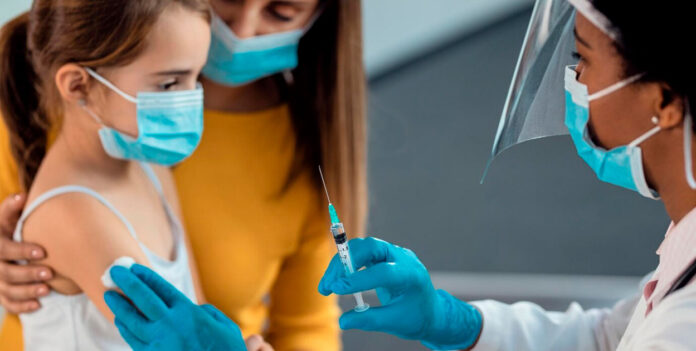Winter is coming, and the holidays as well. That means the next surge of respiratory illnesses, like the flu, COVID-19 and RSV, is also just around the corner. Updated vaccines are now available, but not everyone is running to get them. It’s true, vaccines are harder to access now for those without insurance or who are underinsured, which is a major barrier. But there are people each year who choose not to get vaccinated even if they can afford to. Why? What are they thinking?
I set out to understand this better. Based on some investigating and conversations with others, here are some of the most common reasons why people choose not to get their seasonal vaccinations, and some responses from medical providers and public health experts.
“I’m pretty healthy, so I don’t need a vaccine.”
Flu, COVID-19 and RSV are contagious illnesses, so anyone can get sick with the viruses, even if they feel healthy. It’s also true that certain groups of people are at a higher risk of developing severe complications from these diseases, like pneumonia. These include people who are pregnant, young children and babies, the elderly and anyone who has other chronic conditions such as diabetes or asthma.
“The flu vaccine is unsafe and can give me the flu.”
There is more than 50 years of science and research behind the flu vaccines. They are safe. The most common side effects are muscle aches, fever and nausea, as well as some redness or swelling where the injection is. You can’t get the flu from a flu vaccine because those vaccines use either a dead or weakened form of the virus or no virus at all. You can still catch a non-flu cold virus, even with a flu vaccine.
“I’d rather just get sick.”
The flu, COVID-19 and RSV vaccines all help prevent you from severe illness that might send you to the hospital and be life-threatening. Even if your illness ends up being mild, you can spread the flu to others who might not be so lucky. For those infected with COVID-19, there’s also the risk of developing symptoms of long COVID. For people 75 years and older, RSV can be really dangerous and cause an infection deep in the lungs.
“I’ll wait until the virus hits my neighborhood.”
You shouldn’t wait to get your vaccines! It usually takes 2-3 weeks for the flu and COVID-19 vaccines to become protective, because your body needs time to develop the antibodies. COVID-19 and flu are also somewhat unpredictable in terms of the seasons, typically peaking between December and March.
“I was vaccinated last year.”
Flu viruses and COVID-19 are changing all the time and need to be updated seasonally. COVID-19 is still around and making people seriously ill. The COVID-19 virus has also changed a lot since last year. The 2024-2025 COVID-19 vaccines have been updated to help protect you from the newest variants. In addition, from the protection from the previous year’s vaccines fades over time.
“I don’t like getting injections or needles.”
I think many would agree that getting shots is no fun. But having to be treated in the hospital or spending weeks in bed recuperating is not a walk in the park either. For anyone who can’t handle needles, the nasal spray flu vaccine might be a good option, if you are eligible.
Desiree Franco—a promising young woman from the Hunting Park neighborhood who graduated from Esperanza Academy and who is studying public health at American University—told me: “I think keeping up to date with your vaccines in general is important not only for your own health, but the health of your community.” I couldn’t agree more! Everyone is entitled to make their own decisions about their health, including what goes into their body. However, it is important to make sure that we all have the best and most accurate information on hand when we are making those decisions.







